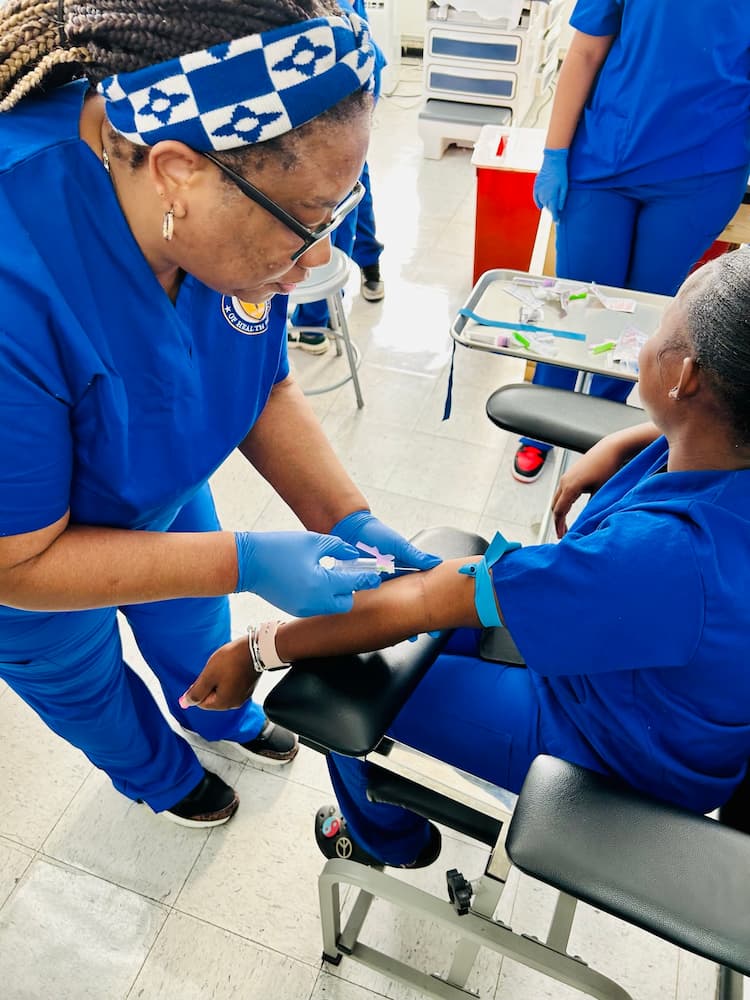In today’s healthcare landscape, outpatient care is critical to the patient experience. It represents a vital sector within the medical field, offering patients essential services without hospital admission.
Central to the seamless operation of these services are Medical Assistants (MAs), whose roles in outpatient care settings are both diverse and critical. From clinics and physicians’ offices to urgent care centers and ambulatory care facilities, MAs ensure the highest standards of patient care and administrative efficiency.
Let’s examine why medical assistants are important in these settings and how they bridge the gap between patients and healthcare providers.
The Multifaceted Role of Medical Assistants in Outpatient Care
Medical assistants serve as the backbone of outpatient care settings. Their ability to perform both clinical and administrative tasks with competence and compassion directly impacts patients’ quality of care. They are vital in making healthcare more accessible and less intimidating, ensuring patients feel heard, cared for, and empowered to take charge of their health.
Here are just some of the valuable tasks MAs manage in the outpatient care setting:
Ensuring Effective Communication
Effective communication is at the heart of quality outpatient care. Medical assistants are often patients’ first and last points of contact, playing a crucial role in facilitating a clear understanding between patients and healthcare providers. They ensure that:
- Patients are well-informed about their appointments and any necessary preparations.
- Healthcare providers receive a concise overview of patient needs and concerns.
- Medical terminology and treatment plans are explained in an accessible language for patients.
- Emotional support is provided, offering reassurance and comfort to those in distress.
Comprehensive Screening and Clinical Support
The clinical responsibilities of a patient care medical assistant are varied and essential for effective diagnosis and treatment. Among these duties are:
- Taking and recording vital signs can offer the first clues to diagnosing a patient’s condition.
- Collecting samples for laboratory tests and administering vaccines, ensuring preventative care and timely diagnosis.
- Performing routine diagnostic tests like EKGs can be critical in detecting cardiovascular issues early on.
- Observing and documenting any additional symptoms that may aid in comprehensive patient assessment.
Empowering Patients Through Education
Empowerment through education is a cornerstone of effective patient care. Medical assistants demystify the healthcare process by:
- Explaining medical terms and conditions, helping patients to understand their health better.
- Offering guidance on managing chronic conditions, from dietary adjustments to medication adherence.
- Instructing patients on wound care and recognizing signs of infection enables them to take proactive steps in their recovery.
- Answering common questions about treatments and medication fosters a sense of autonomy and confidence in patients.
Facilitating Continuity of Care
A medical assistant’s administrative aspect is pivotal in ensuring continuity of care. They are instrumental in:
- Following up with patients who miss appointments, reducing gaps in care.
- Coordinating follow-up visits and referrals to specialists, ensuring a comprehensive approach to patient health.
- Managing patient records and information which is critical for accurate treatment and billing.
Begin a Fulfilling Career Journey with Allen School
Interested in making a meaningful impact in healthcare? The Allen School of Health Sciences equips aspiring medical assistants with the skills and knowledge necessary to thrive in outpatient care settings. Our comprehensive programs focus on real-world applicability, preparing you for a rewarding patient care medical assistant career. By choosing the Allen School, you’re joining a legacy of healthcare professionals dedicated to making a difference.
Are you ready to embark on a fulfilling career path where you can truly make a difference in people’s lives? Contact the Allen School today to learn more about our programs and how we can shape the future of healthcare together.

